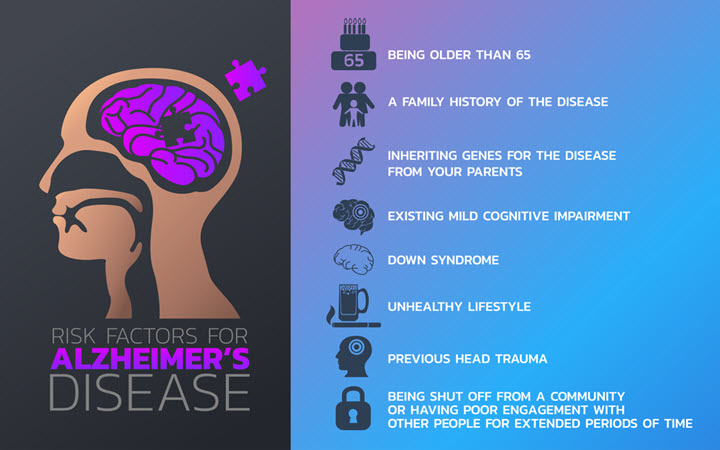Since 1906 when Alzheimer’s was first discovered and named, researchers and scientists have tried to understand what might be the exact cause of the disease.
Researchers do not yet understand the direct cause of Alzheimer’s. The disease involves the progressive failure of brain cells. As with any disease, knowing the cause enables doctors to act preventively to help those at higher risk.
Scientists did studies to analyze any similarities in Alzheimer’s patients to determine if factors made them more vulnerable to developing the disease.
Some risk factors may be within our control, while others may not.
* Old age is accepted as the most significant risk factor. Most people who acquire the disease are 65 years and older.
* Genetics plays an important role. If a person has a parent or sibling with the disease, their chances of getting it will increase threefold. The identified gene that plays a role in Alzheimer’s is labeled ‘apolipoprotein E-e4’. This gene is a blueprint for one of the proteins that transmit cholesterol in the blood. Researchers believe that other genes yet to be identified may be involved.
Although this gene indicates a risk factor, the number of actual cases linked to it are very few compared to the number of Alzheimer’s patients. The conclusion is that Alzheimer’s most often results from a combination of non-genetic and genetic risk factors.
* Severe head injuries are another common link found in Alzheimer’s patients.
* Health problems that may affect a healthy blood flow to the brain make another serious risk factor. The brain is nourished with an extensive network of blood vessels. It will use nearly a quarter of the blood pumped by the heart. Heart diseases, diabetes, high cholesterol, or blood pressure are among some of the issues that can contribute to the risk of Alzheimer’s.
* Excessive alcohol drinking and smoking combined with poor nutrition can deteriorate overall health and contribute to a breakdown in brain activity and health.
* Lack of proper physical exercise to keep blood and oxygen flow healthy can be a risk factor.
* Lack of sufficient mental and social activity to stimulate the brain cells and the neuron connections and thus encourage atrophy.
The evidence to date shows that though genetics may place a person at higher risk, the way a person lives plays a pivotal role. It gives hope that there are external factors within one’s control. Living a healthy lifestyle may prevent or delay this disease.

